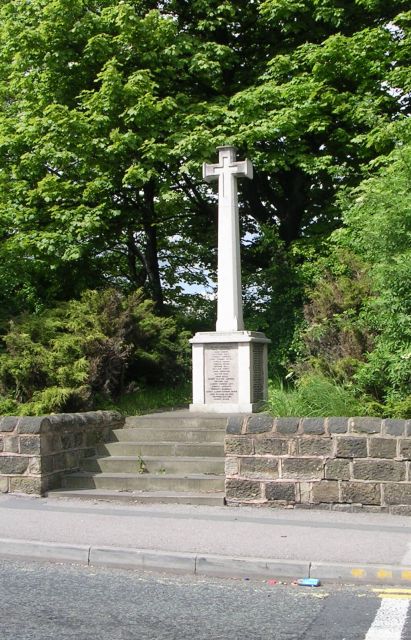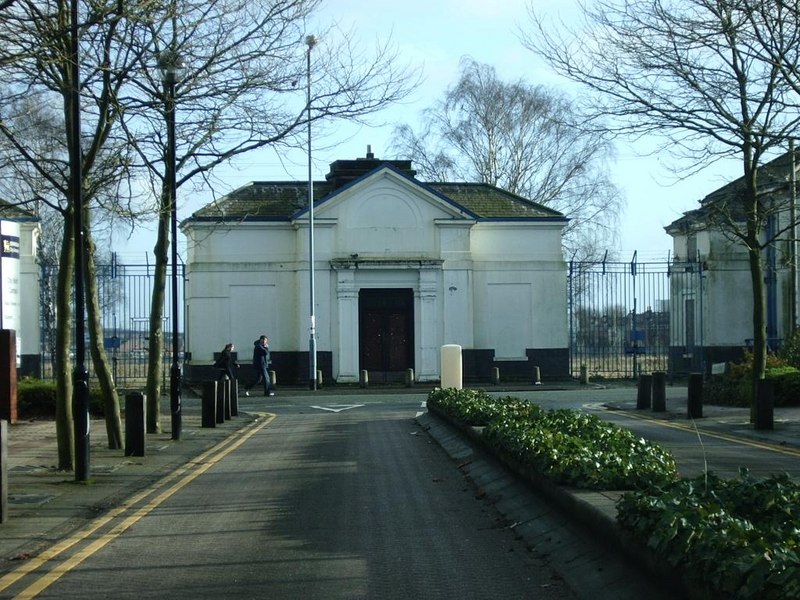|
Yorkshire Imperial Band
The Yorkshire Imperial Band, nicknamed the Yorkshire Imps, is a brass band from West Yorkshire, England. Previous names have included Yorkshire Imperial Metals Band, IMI Yorkshire Imperial Band, Yorkshire Imperial David Urquhart Travel Band, DUT Yorkshire Imperial Band and Yorkshire Imperial Urquhart Travel Band (from former long time sponsors David Urquhart Travel). ) The band was formed in the 1930s as the Yorkshire Copper Works Band based at the Yorkshire Copper Works in Stourton, Leeds, and was renamed when Yorkshire Imperial Metals was created in 1958, owned by Yorkshire Copper Works and ICI Metals Division. The Rothwell Temperance Band was founded in 1881, when the drinkers and non-drinkers of the Rothwell Model Band, established in 1841 or earlier, divided to form two bands, the other being the Rothwell Old Band. In 1999 it was renamed the Wallace Arnold (Rothwell) Band, reflecting sponsorship by coach tour operator Wallace Arnold. The then "B" band retained the name ... [...More Info...] [...Related Items...] OR: [Wikipedia] [Google] [Baidu] |
Brass Band (British Style)
In Britain, a brass band (known regionally as a silver band or colliery band) is a musical ensemble comprising a standardized range of brass and percussion instruments. The modern form of the brass band in the United Kingdom dates back to the 19th century, with a vibrant tradition of competition based around communities and local industry, with colliery bands being particularly notable. The Stalybridge Old Band (still in existence) was formed in 1809 and was perhaps the first civilian brass band in the world. Bands using the British instrumentation are the most common form of brass band in the United Kingdom, Australia and New Zealand, and are also widespread in continental Europe, Japan and North America. The tradition for brass bands in the UK is continuing, and local communities and schools have brass bands. British band contests are highly competitive, with bands organized into five sections much like a football league. Competitions are held throughout the year at local, reg ... [...More Info...] [...Related Items...] OR: [Wikipedia] [Google] [Baidu] |
West Yorkshire
West Yorkshire is a metropolitan and ceremonial county in the Yorkshire and Humber Region of England. It is an inland and upland county having eastward-draining valleys while taking in the moors of the Pennines. West Yorkshire came into existence as a metropolitan county in 1974 after the reorganisation of the Local Government Act 1972 which saw it formed from a large part of the West Riding of Yorkshire. The county had a recorded population of 2.3 million in the 2011 Census making it the fourth-largest by population in England. The largest towns are Huddersfield, Castleford, Batley, Bingley, Pontefract, Halifax, Brighouse, Keighley, Pudsey, Morley and Dewsbury. The three cities of West Yorkshire are Bradford, Leeds and Wakefield. West Yorkshire consists of five metropolitan boroughs (City of Bradford, Calderdale, Kirklees, City of Leeds and City of Wakefield); it is bordered by the counties of Derbyshire to the south, Greater Manchester to the south-west, Lancash ... [...More Info...] [...Related Items...] OR: [Wikipedia] [Google] [Baidu] |
Stourton, Leeds
Stourton is a mainly industrial area of the city of Leeds, West Yorkshire, England. The area falls within the City and Hunslet ward of Leeds Metropolitan Council. Location The area is to the south-east of Leeds city centre, between Hunslet, the M1 motorway and Cross Green in the LS10 postcode area. History Until the local boundary changes in the 1970s Stourton was a village in the Rothwell Urban District, attached to the southernmost border of Leeds, and administered by the West Riding County Council. Stourton dates from the Industrial Revolution, and was a community of about 2,500 people with its own churches and pubs, but from the 1970s the housing was demolished to make way for motorways and industrial developments, until by 1990 little remained of the village except its war memorial. This memorial to "the men of Stourton and Thwaitegate" lists 75 names from the First World War and 25 from the Second. It was moved from its original site to a new one donated by Waddington ... [...More Info...] [...Related Items...] OR: [Wikipedia] [Google] [Baidu] |
Leeds
Leeds () is a city and the administrative centre of the City of Leeds district in West Yorkshire, England. It is built around the River Aire and is in the eastern foothills of the Pennines. It is also the third-largest settlement (by population) in England, after London and Birmingham. The city was a small manorial borough in the 13th century and a market town in the 16th century. It expanded by becoming a major production centre, including of carbonated water where it was invented in the 1760s, and trading centre (mainly with wool) for the 17th and 18th centuries. It was a major mill town during the Industrial Revolution. It was also known for its flax industry, iron foundries, engineering and printing, as well as shopping, with several surviving Victorian era arcades, such as Kirkgate Market. City status was awarded in 1893, a populous urban centre formed in the following century which absorbed surrounding villages and overtook the nearby York population. It is locate ... [...More Info...] [...Related Items...] OR: [Wikipedia] [Google] [Baidu] |
ICI Metals Division
IMI plc (), formerly Imperial Metal Industries, is a British-based engineering company headquartered in Birmingham, England. It is listed on the London Stock Exchange and is a constituent of the FTSE 250 Index. History The company was founded by Scottish entrepreneur George Kynoch who opened a percussion cap factory in Witton, West Midlands in 1862, trading as ''Kynoch''. The business soon diversified, manufacturing goods ranging from soap and bicycle components to non-ferrous metals, but by the early 20th century it had developed particular expertise in metallurgy. After World War I it merged with Nobel Industries. In 1926 the company acquired Eley Brothers, an ammunition business. The company, by then known as ''Nobel Explosives'', was one of the four businesses that merged in 1927 to create Imperial Chemical Industries. The Witton site became the head office of ICI Metals. During the Second World War the Witton site was used for the development and production of uraniu ... [...More Info...] [...Related Items...] OR: [Wikipedia] [Google] [Baidu] |
Rothwell Temperance Band
Rothwell Temperance Band (RTB) are a Championship Section brass band in Yorkshire. Although they do not rehearse in Rothwell itself, they have strong connections with the town and hold many concerts for the local community. The band were crowned Yorkshire Region Champions at St George's Hall in Bradford on 8 March 2009. In March 2012, they qualified for the National Championships at London's Royal Albert Hall for the 5th consecutive year. Early history Formation In the mid-19th century a band called the Rothwell Model Band existed in the town. Later, a dispute arose between the alcohol drinkers and the teetotallers in the band. As a result, the Rothwell Temperance Band was founded in 1881. When the Temperance Hall was built in 1904 one of the four cornerstones was inscribed with the following: ''Laid by Thomas Blackburn in the name of the Rothwell Temperance Band. Established 1881.'' The Rothwell Model Band then became known as the Rothwell Old Band. Early years After the 1 ... [...More Info...] [...Related Items...] OR: [Wikipedia] [Google] [Baidu] |
Wallace Arnold
Wallace Arnold (Barr & Wallace Arnold Trust) was one of the UK's largest holiday motorcoach tour operators. History Wallace Arnold was founded in 1912 and was named after two of its founders Wallace Cunningham and Arnold Crowe. In 1926, the Barr & Wallace Arnold Trust was founded by Robert Barr. In February 1969, the Evan Evans tour business in London was purchased. In the late 1970s, Wallace Arnold commenced operating services under the Euroways banner to Europe. By 1980 it operated 290 coaches from its headquarters in Gelderd Road, Wortley, Leeds, and owned a subsidiary based in Devon. When coach services were deregulated by the Transport Act 1980 in October 1980, Wallace Arnold was a founding member of the British Coachways consortium that competed with the state-owned National Express. It left after a year and briefly ran its own service from London to Torbay. In April 1994, the company gained media attention when five of its fleet transported all of the audience members ... [...More Info...] [...Related Items...] OR: [Wikipedia] [Google] [Baidu] |
Yorkshire Rose
The White Rose of York (Latinised as ''rosa alba'', blazoned as ''a rose argent'') is a white heraldic rose which was adopted in the 14th century as a heraldic badge of the royal House of York. In modern times it is used more broadly as a symbol of the county of Yorkshire. History The symbolism of the white rose has religious connotations as (like the white lily) it represents the purity of the Virgin Mary, one of whose many titles in the Roman Catholic faith is the ''Mystical Rose of Heaven''. In Christian liturgical iconography white is the symbol of light, typifying innocence, purity, joy and glory. The white rose was first adopted as a heraldic badge by Edmund of Langley, 1st Duke of York (1341–1402), the fourth surviving son of King Edward III of England. One of his elder brothers, John of Gaunt, 1st Duke of Lancaster (1340–1399) adopted a red rose as a heraldic badge, the red rose of Lancaster. Their respective descendants fought for control of the throne of Eng ... [...More Info...] [...Related Items...] OR: [Wikipedia] [Google] [Baidu] |
British Brass Bands
British may refer to: Peoples, culture, and language * British people, nationals or natives of the United Kingdom, British Overseas Territories, and Crown Dependencies. ** Britishness, the British identity and common culture * British English, the English language as spoken and written in the United Kingdom or, more broadly, throughout the British Isles * Celtic Britons, an ancient ethno-linguistic group * Brittonic languages, a branch of the Insular Celtic language family (formerly called British) ** Common Brittonic, an ancient language Other uses *''Brit(ish)'', a 2018 memoir by Afua Hirsch *People or things associated with: ** Great Britain, an island ** United Kingdom, a sovereign state ** Kingdom of Great Britain (1707–1800) ** United Kingdom of Great Britain and Ireland (1801–1922) See also * Terminology of the British Isles * Alternative names for the British * English (other) * Britannic (other) * British Isles * Brit (other) * Briton (d ... [...More Info...] [...Related Items...] OR: [Wikipedia] [Google] [Baidu] |


.jpg)
